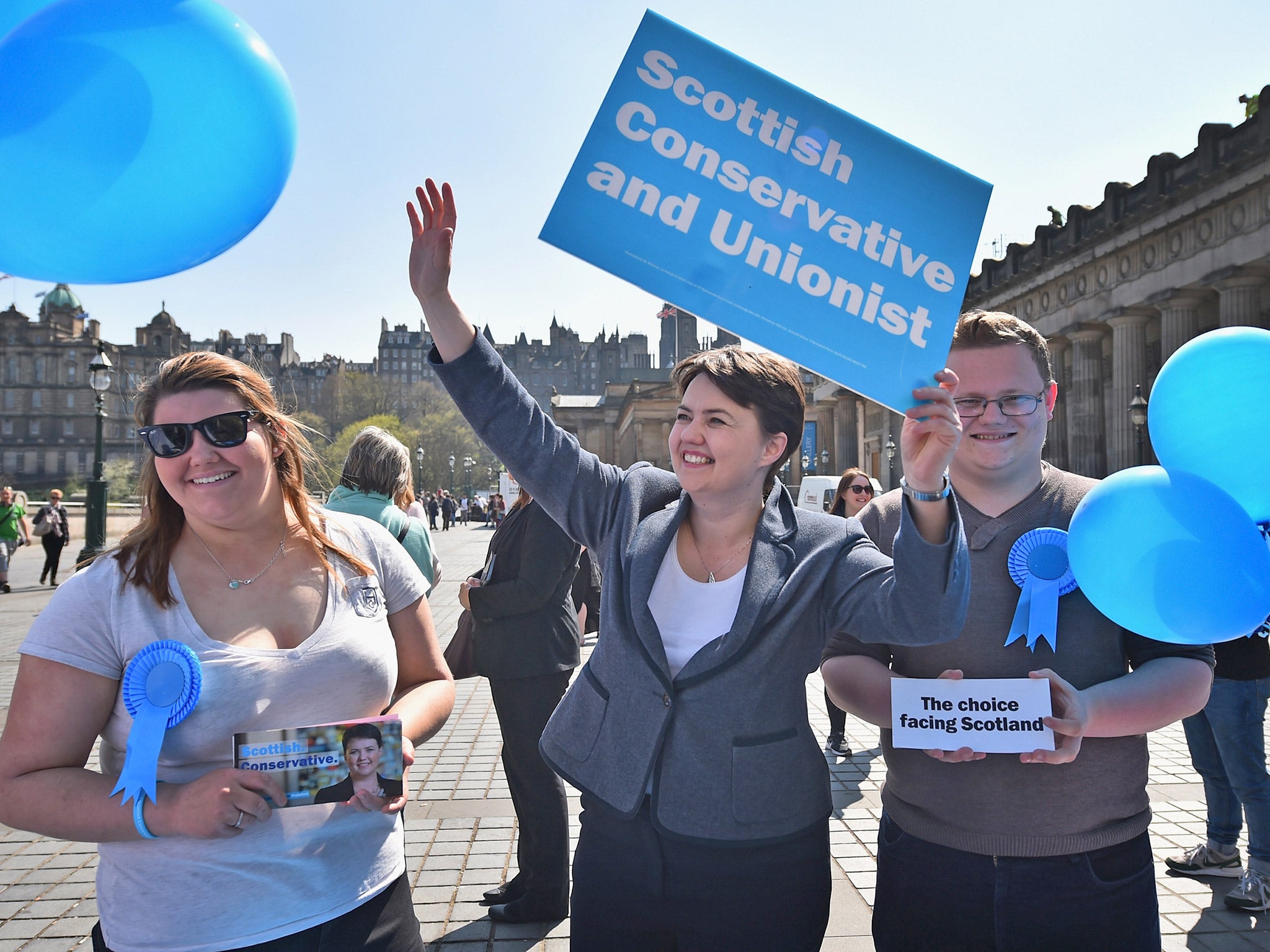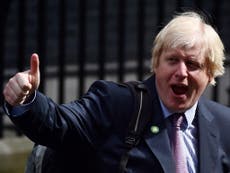The Tory brand in Scotland remains toxic
Scottish Tory leader Ruth Davidson is gaining ground on the SNP, but to little avail

In Manchester this week there’s been the unmistakable sound of Tory tanks positioning themselves on the centre ground recently vacated by Labour. Chancellor George Osborne has been talking up his Northern Powerhouse while the Prime Minister even promised a “crusading campaign” on social reform. It’s undoubtedly a smart strategy, but where does it leave the Conservative Party in Scotland?
The answer is pretty much the same place, for the slings and arrows of Conservative fortunes in England and Wales long ago ceased to be felt across the Anglo-Scottish border. At May’s election, for example, there was no swing to the Tories; instead the party lost another 1.8 per cent of its vote.
The annual gathering of the Conservative faithful nevertheless has its Scottish rituals. David Cameron charmed the “Scots night” gathering as he always does; Ruth Davidson is as busy as ever on the fringe, while there will be the usual paragraph about the Union in the Prime Minister’s keynote speech today.
So it’s not for want of trying. Indeed, Mr Cameron, Ms Davidson and the Secretary of State for Scotland, David Mundell (still the party’s sole Scottish MP), have spent the past few days attempting to frame next May’s Holyrood elections around the twin issues of tax and welfare.
With additional discretion over welfare and control over 10p of each income tax band coming the Scottish Government’s way next April (and the rest a year after that), the Conservatives believe they can bounce the SNP into becoming the high-tax high-spend party it often gives the impression of being.
At least that’s the plan. “I think next May is our big chance,” one senior party figure told me, “for the first time in a generation the opportunity is there.” By “opportunity” he meant the chance to increase both the Scottish Conservative Party’s share of the vote and its number of MSPs. Ms Davidson predicts the latter will be higher than ever before, which means more than the 18 secured at the first Scottish Parliament elections in 1999.
There are other factors contributing to the Scottish Conservative Party’s optimism. Strategists believe the election of Jeremy Corbyn as Labour leader makes the Scottish Labour Party even less credible, believing Ms Davidson impresses voters more than Kezia Dugdale. Almost half the current MSP group are also standing down next May, making way for some fresh faces such as the constitutional lawyer (and Scotland Office adviser) Adam Tomkins.
The trouble is that Ms Davidson’s success – there’s even been quixotic talk of her succeeding Cameron as UK party leader – serves to underscore the point: even with popular leaders, the party has been unable to make any headway. That said, the tactical voting that undoubtedly deprived the Scottish Conservatives of votes earlier this year will be much less likely in a devolved context, for voters understand that it’s possible to get Tories elected via the top-up regional list. The party plans to shore this up by emphasising its Unionist credentials; as Ms Davidson put it the other day, they’ll present themselves as “the distinctive voice of the two million Scots who want to stay part of the UK”.
Party number-crunchers point to a series of recent council by-elections that, although mostly won by the SNP, revealed that a “significant” number of Labour voters were prepared to give the Conservatives their second-preference votes. “People who are anti-Nat,” one senior figure told me, “are much more wound up than ever before.” In other words, if it takes supporting the hated Tories to keep out the SNP and preserve the Union, even Labour voters are prepared to swallow their anti-Tory pride.
There’s a danger, of course, of reading too much into council by-election results. The psephologist Professor John Curtice has warned that the “prospect of the Tories overtaking Labour across Scotland as a whole”, as some excitable Scots Tories appear to believe, remains extremely unlikely.
Displacing Labour as the main opposition party would be a major coup for the Conservatives, but it remains the stuff of political fantasy in Scotland. That’s largely because the Tory brand in Scotland remains a toxic one. Long perceived as “anti-Scottish” by a large proportion of the electorate, recovery has naturally been challenging in a political environment that is increasingly nationalist.
Thus the party long ago softened its right-wing edges. At a fringe event, Davidson said the whole purpose of government was to “help people who can’t help themselves” – not something you’d have heard from a Tory 30 years ago. But, as the Conservatives know better than most, it takes more than warm words to win votes in modern Scotland.


Join our commenting forum
Join thought-provoking conversations, follow other Independent readers and see their replies